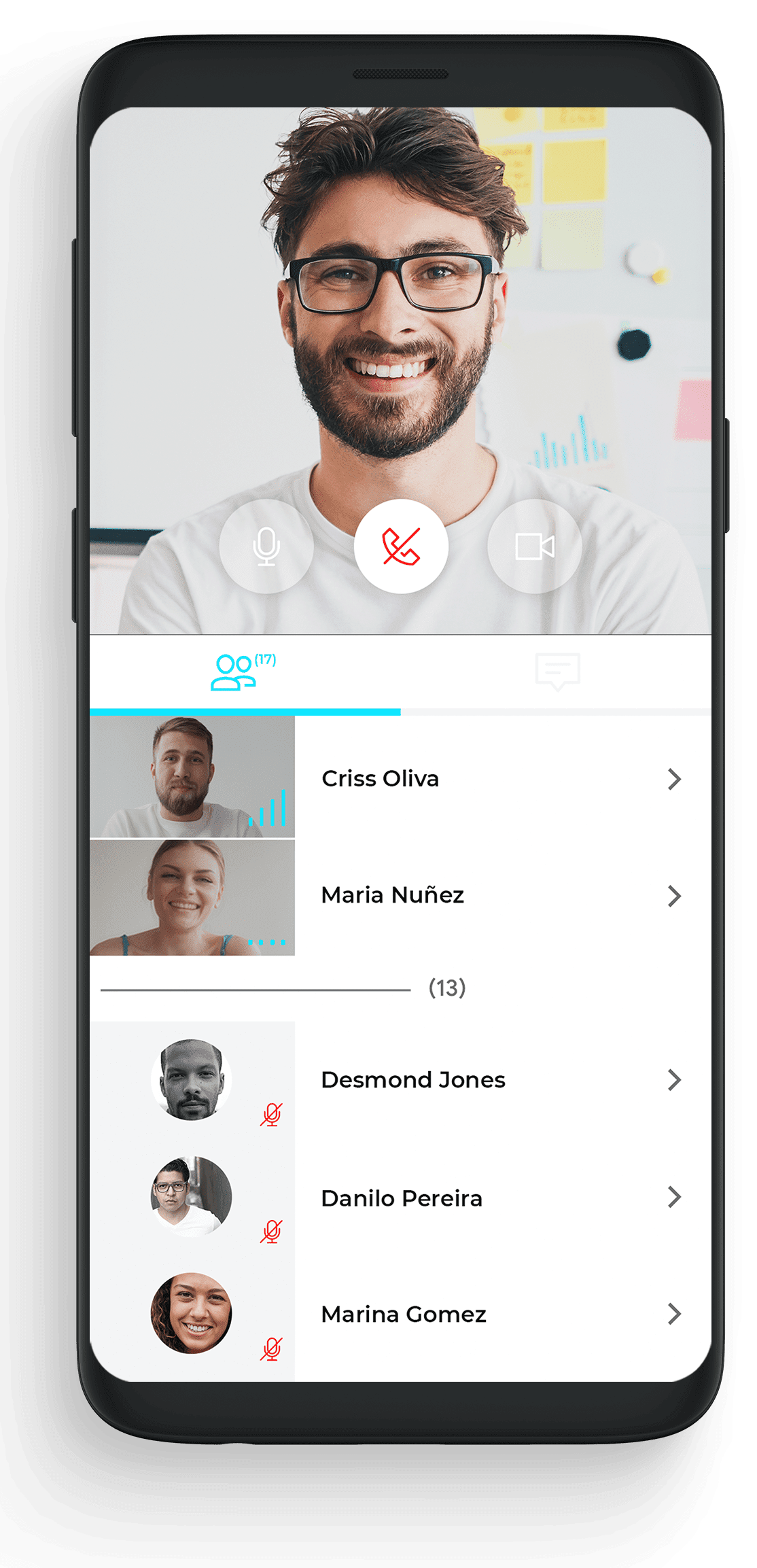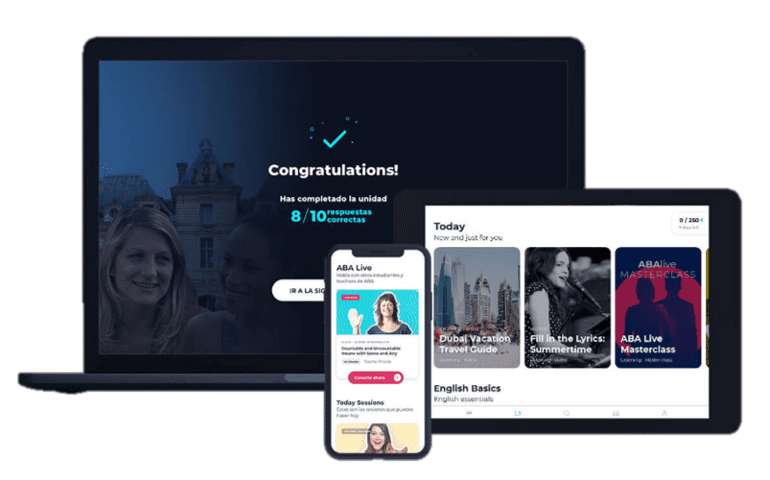IELTS Speaking
Prepare for your IELTS speaking test
The IELTS is an exam with a UK focus, developed by Cambridge University, the British Council, and IDP Australia. As is normal, it includes a speaking test, which is perhaps one of the most feared portions of any English exam.
This fear is reasonable since the IELTS speaking test is the only section of this exam that requires active participation and real-time interaction with the examiner. For this reason, comfort and confidence both play an important role since most people find it embarrassing to expose their mistakes in pronunciation, even if they read, write, and understand English perfectly.
ABA English understands this, which is why our resources are interactive and promote speaking practice in our students from all over the world.
Do you feel confident when speaking English?
Phonetics studies the production, transmission, and perception of the sounds we make when communicating in a specific language. The most curious thing is that this is practically our natural way of learning a language, our native language. So, why do we find it so hard to speak English?
English phonetics are different from the phonetics of other languages. In English, you’ll find sounds that you don’t have in your own language, which might literally twist your tongue into knots. How can you overcome this?
The principle is simple: listen and imitate. This is a little more difficult in practice since you have to get used to articulating these different sounds. This is why IELTS speaking practice to improve your skills is essential.
In the speaking test, you’ll have to speak with a native speaker for several minutes. So, you should have a clear understanding of phonetics and your pronunciation should be understandable. There are no right or wrong answers, the important thing is that you sound correct and are consistent.

How to prepare for the IELTS speaking test
Here’s a selection of IELTS speaking tips that will be very useful when honing your speaking skills.
Learn to talk about yourself.
IELTS Speaking Part 1 is a short interview on a personal level. You’ll be asked about your lifestyle, interests, aspirations, family, and so on. You obviously already have clear answers to these IELTS speaking topics, so if you practice what you’ll say, you won’t have any problems with this part of the test.
Don’t be self-conscious
You need to speak with confidence in the test, so you should start building that confidence now. Do you make mistakes? We all do. What about the foreigners in your country? Take a risk and speak. If you don’t, you won’t know what your faults are and you won’t be able to correct them.
Speak a lot
During the test, you must speak fluently, be spontaneous, and develop your answers. It’s not a good idea to answer using monosyllables. So practice, talk to others, talk about different topics, and strive to enhance your conversation skills.
Talk about what you know
In IELTS Speaking Part 2, you’ll be given a card with a topic you’ll need to develop, including the key points to be covered. These tasks are suggestions. You should talk for two minutes, so focus on the topics you know best.
Improve your speaking to pass the IELTS
Do you have questions? Check out this short FAQ
Do I have to speak the whole time?
Yes. Try to make the examiner the one who sets the pace. In stressful situations, it’s easy to lose track of time. After just 30 seconds, you might feel like you spoke for two minutes. Try to elaborate on your answers.
Should I use formal or informal language?
The test is informal, so you’ll use everyday language. However, you should avoid vulgar or colloquial expressions that could be misinterpreted when speaking.
Will my accent be a problem?
Only if it makes your pronunciation difficult for the examiner to understand. In general, they’re not testing your accent, so try not to use a fake British accent to earn extra points.
What if I don’t know the answer to a question?
Improvise. Don’t say you don’t know. You can give an opinion by acknowledging that you’re not very familiar with the subject. Remember that they’re evaluating how you communicate, not how much you know about a particular topic.
The advantages of preparing with ABA English
Audiovisual resources
At ABA English, we want you to improve your phonetics from the start. That’s why each unit in our certified English course starts with an entertaining ABA Film where you’ll hear dialogues from native actors. Later, you’ll repeat them, copying their pronunciation. You’ll be recorded and then will be able to compare your recording to the original audio.
Practice with others
In addition to a large number of speaking exercises, you can participate in our Speaking Sessions. We have more than 30 million students, so you’ll always have someone to talk to about your favorite topics, current events, or even grammar and vocabulary.
An interactive app
We don’t only offer a course. We also have an app that will help you progress on a daily basis with lessons and short exercises that you can access from your smartphone, anytime and anywhere. Yes, there are many exercises to serve as IELTS speaking practice.
The Smart Learning® method
All the resources that ABA English offers are included as part of our unique method so that you can learn in a fun way. Smart Learning® allows you to connect to the language from an emotional perspective while you enjoy the topics that interest you.

Not convinced yet?
With ABA English, you won’t feel overwhelmed by English because our content fits your interests. To achieve such a high degree of personalization, we’re constantly adding and updating our materials, including podcasts, microlessons, blogs, ABA Films, and many other resources so that you never lose interest.
The units, lesson topics, and our entire curriculum are aligned with the requirements of assessment and certification bodies, such as Cambridge University and the British Council, developers of the IELTS. Every time you complete a unit from our course, you’ll be mastering a topic that may be part of the IELTS speaking topics, so you’ll be fully prepared.







